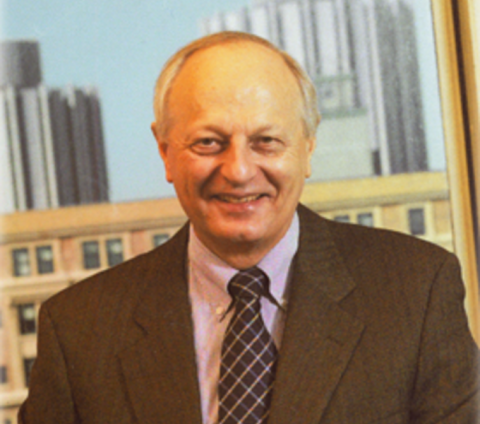
In recognition of contributions to particle technology research, the World Assembly of Particle Technology presented University of Pittsburgh Professor George A. Klinzing with its Lifetime Achievement Award at the Ninth World Congress on Particle Technology (WCPT) in Madrid, Spain. Klinzing, who is Emeritus Professor of Chemical and Petroleum Engineering at Pitt’s Swanson School of Engineering, was feted for “a lifetime of excellence in the field of particle technology.”
WPCT is the world’s major scientific congress for particle and bulk solids technology, an international forum for research, technological development, and innovation in new technologies.
“George has led a distinguished career in chemical engineering and is a foundational part of our department,” noted Steven Little, Distinguished Professor and Department Chair. “He is an innovator, inventor, and most importantly a well-respected mentor to generations of faculty and students. We are excited for him to receive this honor from his international peers.”
Klinzing's research focus is solids processing, spanning the topics of coal cleaning, coal-water slurries, coal dewatering, combustion, pneumatic conveying of most industrial bulk solids. He holds four patents as well as copyrights on four computer packages involving calculations and artificial intelligence.
Klinzing is a Fellow of the American Institute of Chemical Engineers and the American Association for the Advancement of Science and holds a Doctorate of Engineering honoris causa from the University of Newcastle in Australia. He earned his bachelor of science in chemical engineering from the University of Pittsburgh in 1959 and M.S. (1961) and PhD (1963) in chemical engineering from the Carnegie Institute of Technology (now Carnegie Mellon University). He joined the Pitt faculty in 1966 after three years on a university development project in Quito, Ecuador. From 1995-2012 he served as the University’s Vice Provost for Research. Klinzing has delivered over 200 technical presentations at professional meetings, universities, and industries both nationally and internationally, and has advised 25 PhD students and 54 MS students.
From Pitt SSOE
